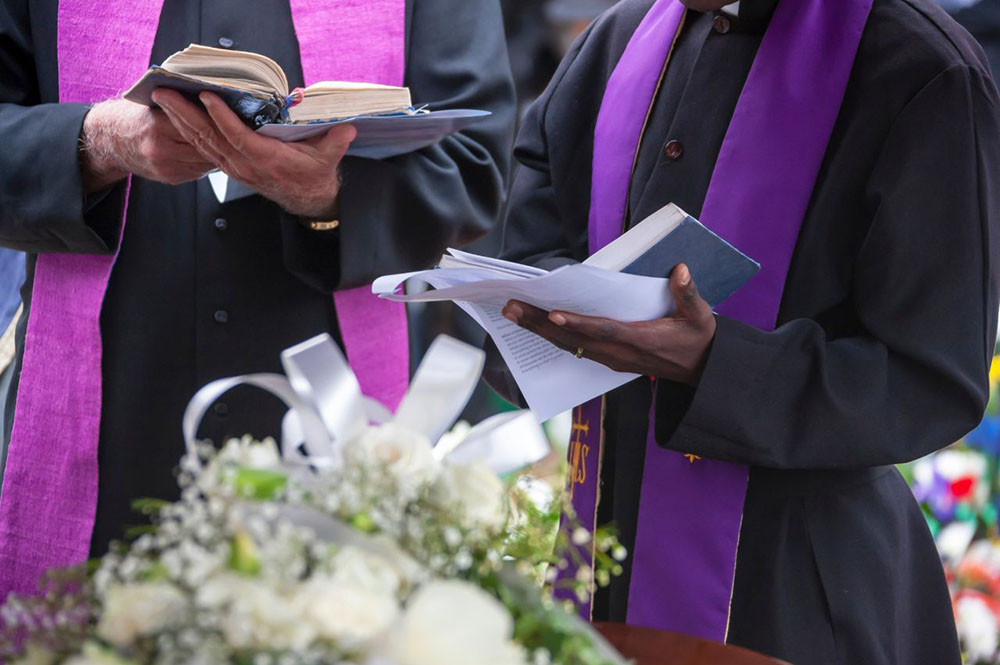Funeral pre-planning is a thoughtful and considerate process that involves making arrangements in advance to ensure that one’s final wishes are respected and honored. A critical aspect of this planning involves understanding and incorporating cultural and religious requirements. These elements are deeply significant as they reflect an individual’s heritage, beliefs, and traditions, providing comfort and meaning to their loved ones during a time of grief. By meticulously addressing these aspects, individuals can create a funeral plan that is not only respectful but also deeply personal and meaningful.

Incorporating Cultural Traditions in Funeral Pre-Planning
Cultural traditions play a pivotal role in funeral pre-planning, as they dictate various rituals and practices that are essential to the funeral process. Different cultures have unique ways of honoring the deceased, which can include specific rites, ceremonies, and customs. For instance, in many Asian cultures, it is customary to hold an elaborate wake and funeral procession, reflecting the high regard for ancestors and the afterlife. Similarly, in Hispanic cultures, the celebration of life, often with music and vibrant decorations, is integral to the funeral service. By incorporating these traditions, individuals ensure that their cultural identity is honored, providing solace and a sense of continuity for their family and community.
Incorporating cultural traditions into funeral pre-planning involves a detailed understanding of the specific practices and rituals that are important to the individual and their family. This may include selecting appropriate attire for the deceased, choosing specific floral arrangements, and determining the order of service. It is also important to consider the cultural significance of certain symbols and artifacts that may be included in the ceremony. By thoughtfully integrating these elements, individuals can create a funeral plan that is not only culturally appropriate but also deeply resonant and meaningful.
Addressing Religious Requirements in Funeral Pre-Planning
Religious beliefs and practices are another critical component of funeral pre-planning. Each religion has its own set of rituals, ceremonies, and guidelines for handling the deceased, which must be respected and adhered to. For example, in Christianity, the funeral service often includes prayers, hymns, and scripture readings, followed by burial or cremation according to the deceased’s wishes. In Islam, the body is washed, shrouded, and buried as soon as possible, with specific prayers and rituals performed by the community. Judaism has its own set of funeral practices, including the recitation of the Kaddish and the practice of sitting Shiva. Hindu funerals typically involve cremation, with rituals that guide the soul on its journey to the afterlife.
When pre-planning a funeral, it is essential to consult with religious leaders or knowledgeable individuals within the community to ensure that all religious requirements are met. This may include choosing a funeral home that is familiar with the specific religious practices, selecting appropriate religious texts and readings, and coordinating with religious officials to lead the service. Additionally, it is important to consider the timing of the funeral, as certain religions have specific time frames within which the funeral must take place. By carefully addressing these religious requirements, individuals can create a funeral plan that honors their faith and provides comfort to their family and community.
Navigating Complexities in Multi-Cultural and Interfaith Families
In today’s diverse society, it is increasingly common for families to encompass multiple cultures and religions. This can add a layer of complexity to funeral pre-planning, as it may require balancing and integrating different traditions and practices. In such cases, it is essential to have open and honest conversations with family members to understand their perspectives and preferences. This collaborative approach can help identify common ground and find ways to honor the deceased’s wishes while respecting the beliefs and traditions of all family members.
Navigating these complexities may involve making compromises and finding creative solutions to incorporate different cultural and religious elements into the funeral service. For example, a multi-cultural funeral might include a combination of rituals from different traditions, such as a traditional Christian burial followed by a cultural celebration of life. An interfaith funeral might involve readings and prayers from multiple religious texts, with representatives from different faiths participating in the service. By embracing the diversity within the family and working together to create a meaningful and inclusive funeral plan, individuals can ensure that their final wishes are honored in a way that brings comfort and unity to their loved ones.
Funeral Pre-Planning: Key Factors to Consider
Funeral Pre-Planning: Key Factors to Consider involves understanding and incorporating cultural and religious requirements, navigating the complexities of multi-cultural and interfaith families, and addressing the financial and legal aspects of funeral planning. By taking the time to consider these factors, individuals can create a comprehensive and thoughtful funeral plan that reflects their values, beliefs, and wishes. Funeral Pre-Planning is not only about making practical arrangements; it is about honoring one’s legacy and providing comfort and clarity to loved ones during a difficult time.
When considering Funeral Pre-Planning: Key Factors to Consider, it is also important to think about the logistical details of the funeral, such as choosing a funeral home, selecting appropriate services and merchandise, and documenting one’s wishes in writing. Clear communication with family members and loved ones is essential to ensure that everyone understands the plan and feels included in the process. By addressing these key factors, individuals can create a funeral plan that is comprehensive, respectful, and deeply meaningful, providing peace of mind for themselves and their loved ones.
Taking the initiative to pre-plan a funeral is an act of compassion and foresight. By considering cultural and religious requirements, individuals can ensure that their final wishes are honored in a way that is both respectful and meaningful. This thoughtful approach to funeral planning not only alleviates the burden on loved ones but also creates a lasting legacy that reflects one’s values, beliefs, and traditions.


